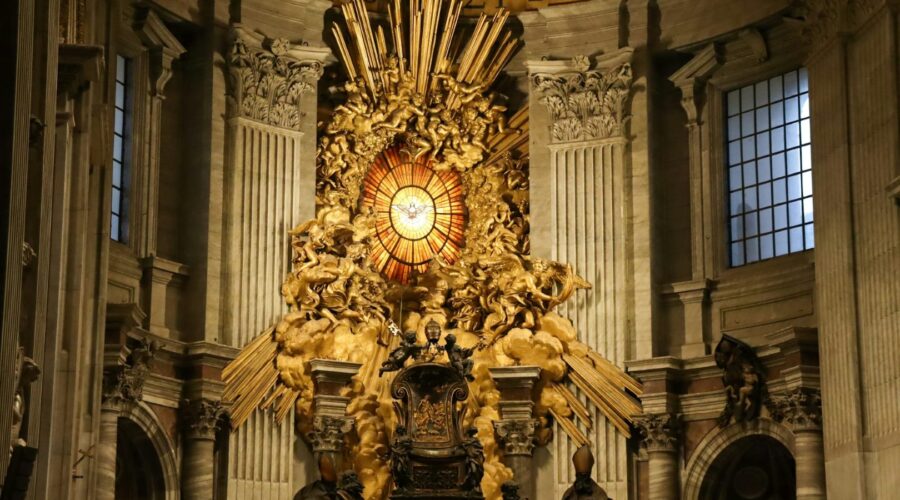Your cart is currently empty!
Discover the Life, Legacy, and Impact of Saint Athanasius: A Pillar of Orthodoxy Against Arianism

In the annals of Christian history, Saint Athanasius stands as a towering figure, a staunch defender of orthodoxy against the insidious heresy of Arianism. His unwavering conviction, theological brilliance, and relentless struggle for truth left an indelible mark on the Church, shaping its doctrine and safeguarding its integrity.
Early Life and Education
Athanasius was born around 296 AD in Alexandria, Egypt, the son of devout Christian parents. From a young age, he exhibited a profound intellect and a deep love for the Scriptures. He received an excellent education in both secular and religious subjects, excelling in rhetoric, philosophy, and theology.
Monastic Influences
During his formative years, Athanasius immersed himself in the monastic traditions of the Egyptian desert. He spent extended periods in solitude and prayer, seeking spiritual enlightenment and communion with God. These monastic experiences had a profound impact on his character, instilling in him a love of asceticism, humility, and theological contemplation.
Bishop of Alexandria
In 328 AD, Athanasius was consecrated as Bishop of Alexandria, the most prestigious see in the Eastern Church after Rome. He quickly became a leading voice in the Church, known for his oratorical skills, theological depth, and unwavering commitment to orthodoxy.
Arian Controversy
The early 4th century was marked by the rise of Arianism, a heresy that denied the full divinity of Christ. Athanasius became a staunch opponent of this heresy, arguing that Christ was not merely a created being but rather the eternal Son of God, equal in substance to the Father.
Exile and Return
Athanasius’s unwavering defense of orthodoxy drew the ire of his Arian opponents, who accused him of heresy and sought to remove him from his position. He was exiled multiple times by Emperor Constantine and his successors, but each time he returned to Alexandria with renewed vigor and determination.
Council of Nicaea
In 325 AD, the Council of Nicaea was convened to address the Arian controversy. Athanasius played a pivotal role in the Council’s deliberations and the formulation of the Nicene Creed, which affirmed the divinity of Christ and condemned Arianism as heresy.
Theological Contributions
Athanasius made significant contributions to Christian theology, particularly in the areas of Christology and Trinitarian doctrine. He emphasized the unity and indivisibility of the Godhead, while also affirming the distinct persons of the Father, Son, and Holy Spirit.
The Incarnation
Athanasius argued that the Incarnation of Christ was not merely a temporary event but rather an enduring union of the divine and human natures. He taught that Christ fully assumed human nature, including its suffering and mortality, but without compromising his divine essence.
The Trinity
Athanasius’s Trinitarian theology emphasized the consubstantiality of the three persons of the Godhead. He argued that the Father, Son, and Holy Spirit are of one substance and equal in divinity, but distinct in their personal attributes.
Legacy and Impact
Saint Athanasius’s legacy continues to resonate in the Church today. His unwavering defense of orthodoxy, his theological insights, and his unwavering commitment to truth have left an enduring mark on Christian thought and practice.
Defender of Orthodoxy
Athanasius is revered as a champion of orthodoxy, a man who stood firm against heresy and preserved the integrity of the Christian faith. His writings continue to serve as a source of inspiration and guidance for theologians and church leaders.
Influential Theologian
Athanasius’s theological contributions have profoundly shaped Christian doctrine. His teachings on Christology and the Trinity have become cornerstones of Christian belief and continue to be studied and debated by theologians around the world.
Model of Courage and Perseverance
Despite the trials and tribulations he faced, Athanasius never wavered in his commitment to truth and justice. He serves as a model of courage, perseverance, and unwavering faith in the face of adversity.
Table of Athanasius’s Key Works
| Title | Description |
|—|—|
| On the Incarnation | A defense of the Nicene Creed and an exposition of Athanasius’s Christology |
| Against the Arians | A four-volume polemical work against Arianism |
| Life of Antony | A biography of Saint Antony the Great, the founder of Christian monasticism |
| Letters | A collection of Athanasius’s letters, providing valuable insights into his theology and ecclesiastical leadership |
Links to External Resources
- Saint Athanasius: Britannica Encyclopedia
- Writings of Saint Athanasius: New Advent
- Saint Athanasius: Christian Classics Ethereal Library
Conclusion
Saint Athanasius was a towering figure in Christian history, a man of unwavering faith, profound theological insight, and unwavering commitment to orthodoxy. His defense of the Nicene Creed, his contributions to Christology and Trinitarian doctrine, and his courageous stand against Arianism have left an enduring legacy on the Church. Athanasius’s writings and witness continue to inspire and guide Christians today, reminding us of the importance of upholding the truth, preserving the integrity of the faith, and striving for unity in diversity.